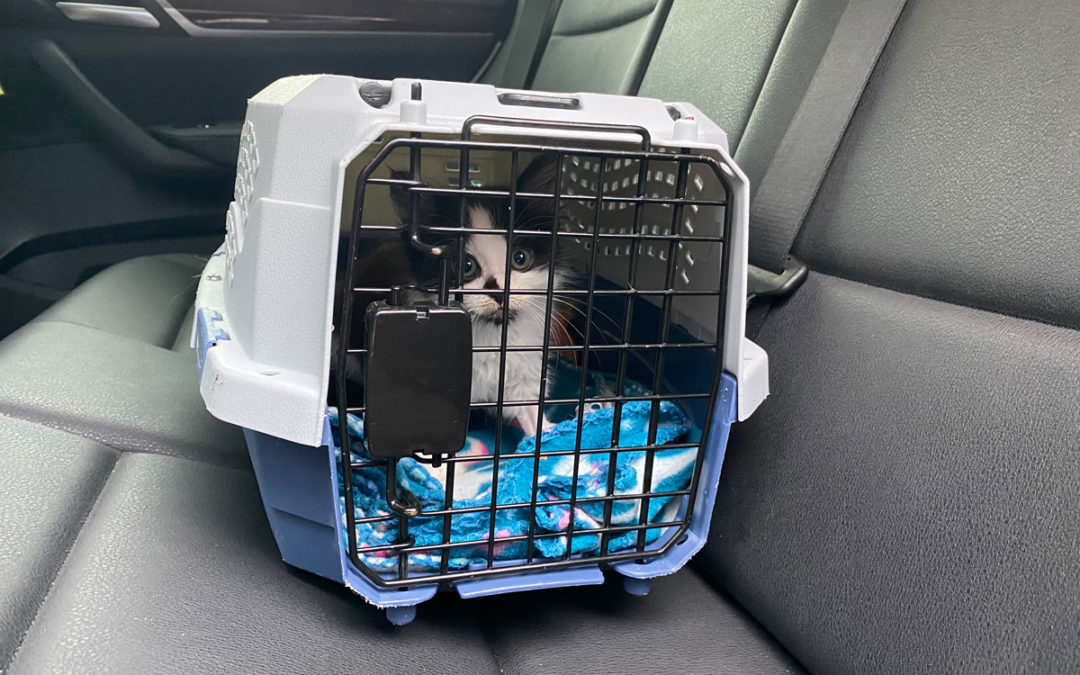For safe transport, put you cat in a hard-shell carrier in the back seat of the car. Secure the carrier with the seat belt. You can also push the passenger seat all the way back, sandwiching the carrier between front and back seats.
After 200+ foster kittens, Kelly Erb (our Director of Operations) knows a thing or two about getting a cat in a car.
Her advice: make the cat carrier a calm and happy place.
Car safety begins before you hit the road for your summer vacation. Firehouse recommends against free roaming felines when you hit the road. Wandering cats can be a distraction. A collision could throw the cat from your car. The cat could hit the windshield. And airbags could crush a cat in your lap.
Follow these tips to keep you and your pet safe, whether you’re making a quick trip to the vet or heading out on a vacation.
1. Car Carriers 101: Is your cat a “hider” or an “explorer”?
Buy the right carrier depending on your cat’s personality.
“Hiders” need small cozy spaces. Choose a smaller carrier where your cat can snuggle under a blanket. Once in the car, hiders enjoy darkness. Cover the carrier with a towel.
“Explorers” need a larger space. Buy a mid-sized dog carrier that can hold a small litterbox, water and food bowls, and still offer space for your cat to lie down.
Hardshell carriers are the safest for car rides. Even better if it has a loop for a seat belt. You can also move the passenger seat back to brace the carrier, so an impact won’t pitch it forward.
2. Expose cats to carriers early and often
Cats need time to become comfortable with confined spaces, i.e., the carrier and the car.
-In the house: leave the carrier out so cats adjust to its presence. Feed your feline in the carrier so they associate it with a cozy place to relax.
-In the car: to start, feed your cat in the carrier, in the back seat of the car. Then let your cat sniff around the car and spread their scent. They’ll feel calmer once they’ve explored the space. Spray Feliway, a pheromone, to help ease the cat’s nerves. Be careful that kittens don’t get stuck in small spaces (under the pedals or seats). Five minutes of exploration should do the trick that first time. Do this a few times before your first car trip.
Older cats who were never car carrier or car trained need a second pair of hands. Bring a friend to hold the cat in the back seat.
3. Ready to hit the road
Always place the carrier on the back seat.
Work up to road trips with short trips around the block.
Use Feliway during each car ride.
Plan for exiting the car at your destination. Cats like to be up high so they can get a lay of the land. Don’t put the carrier on the ground. Instead, place it on the bed or a counter. That way when you open the carrier, they can see their new space without fear of kids/dogs racing toward them.

